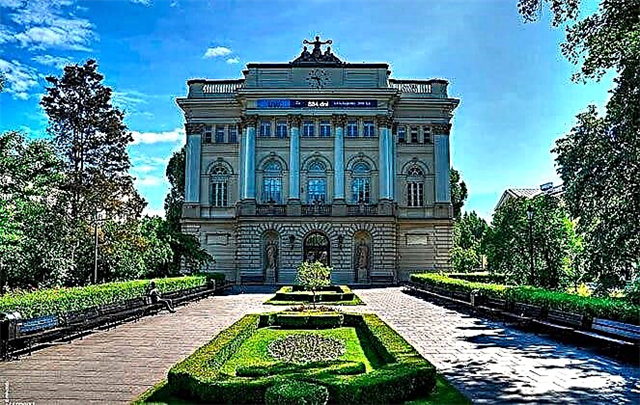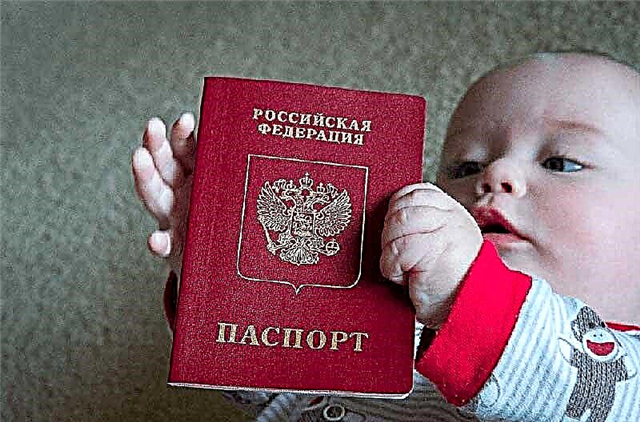For many parents, confirmation of Russian citizenship for children seems to be a useless procedure. It is quite logical if both the mother and the father are Russians. But even in such cases, citizenship has to be confirmed. Otherwise, the baby will not be able to fully enjoy all the privileges of the status of a Russian.
When you need to prove your child's citizenship
If a person was born on the territory of the Federation, he has full rights to possession of citizenship. If one of the parents is a foreigner, the child is recognized as a subject after submitting a joint letter from mom and dad.
Legislatively, the status assignment procedure is regulated by Presidential Decree No. 1325 of 2002.
It states that you will not have to apply for citizenship for a newly made Russian if you have at least one of the following certificates:
- Foreign document issued for a child;
- Certificate with proof of birth, equipped with a seal or annex on state status;
- Russian passport issued upon reaching the age of 14;
- The parent's national or overseas identity card, which contains information about the minor.
According to Decree No. 444 of 2011, there is no need to formalize citizenship for children who descended from Russians outside the country. In this situation, a birth certificate should be printed in the name of the baby with an attachment to the status assignment. The document is handed over at the location.

Why does a kid need to apply for citizenship
In other cases, not discussed in the previous paragraph, it may be necessary to issue the status under discussion for the child. This event is not necessary, as an applicant under the age of 14 can easily do without it.
However, it is still recommended not to delay the filing of an application, since without a stamp on the nationality of the baby it will not work:
- Go abroad with him;
- Register the baby at the place of residence (in some cases);
- Enroll a minor in a civil or foreign adult identity card;
- Apply for maternity capital;
- Enroll the growing up in a kindergarten or school;
- Request a passport for a child under 14 years old and a national passport for a teenager over this age.
In order to avoid unpleasant consequences in a timely manner, adults should prepare a file with official papers and submit an application for assigning the status of a Russian to a child.
Principles for obtaining child citizenship
You May Also Like
The specifics of assigning the status of a citizen to a minor differed in different years. Now all these methods are relevant and have the same legal force, although they differ in minor nuances.

Nuances and collection of documents by age
The list of documents and the nuances of assigning status depend on the age of the minor:
- The baby was born later in 2007. Both father and mother will need a signed statement and documented proof of birth. After studying the papers, the certificate will be stamped;
- The teenager was born from 2002 to 2007. At this time, children were given applications for citizenship, which were later replaced with seals. Applications were handed over upon birth upon presentation of statements and certificates. The papers still have legal force;
- Born before 2002. During this period, the design was much more complicated. The family had to prepare the following package of documents:
- Father and mother national passports;
- Minor's certificate of birth;
- A statement from two parents that the new citizen belongs to national citizenship;
- A certificate of where dad and mom were registered in February 1992.
Minors who have already passed 14 years old apply for status on the basis of permission from relatives verified by a notary. If the small applicant has not yet reached the age of 14, his status changes along with the citizenship of his parents.
Where to submit documents
To apply for citizenship, the parents of a minor must contact one of the departments of the Main Directorate of the Ministry of Internal Affairs. It is necessary to choose the branch closest to the place of registration. Full information about offices, addresses and telephone numbers is presented on the portal of the Ministry of Internal Affairs of the Russian Federation.
You can also submit an application at one of the branches of the multifunctional center.
How long to wait for consideration
You can send an application for granting citizenship immediately after receiving a birth document and up to 18 years of age. Persons who have reached the age of majority submit an application on their own.
Usually, the application is considered on the day of filing, after which a seal appears on the certificate with the date of registration of the status. If the acquisition of status is requested (for example, when the mother or father is a foreigner), documents are considered from 3 months to six months.
Registration of citizenship in individual cases
You May Also Like
The principles of confirming or acquiring Russian citizenship can be complicated depending on the status of relatives. If the mother / father or both adults are citizens of another state, it is more difficult for their baby to obtain Russian citizenship.

One of the parents is a foreigner
If the family lives in Russia, and one of the parents is a foreigner, civil status is assigned to one of the parents. A minor can obtain citizenship of the Russian Federation or a second country at the discretion of the parents, if the regulations of the second state allow this.
Soon after the birth of a son or daughter, a Russian parent submits a paper on birth to the MFC or the Ministry of Internal Affairs. There the application is considered for about 7 days, after which a seal is placed on the certificate confirming the assignment of civil status.
Both native are foreigners
A minor whose relatives are recognized as foreigners or stateless persons (stateless people) receives Russian citizenship if two conditions are met:
- The baby should be born on Russian soil;
- It has been officially established that the country of which the adults are named does not want or does not have the right to grant its citizenship to a newborn.
That is, it is within the competence of the Russian government to prevent a newborn from becoming stateless.
The child was born abroad
If the mother and father are recognized by Russians, but the child was born abroad, by right of blood he is also called a citizen of the Russian Federation. The application for status occurs immediately after birth at the embassy of a foreign state. One of the close relatives can apply. Consideration will last up to 90 days.
The same rule applies if one of the parents is a foreigner. In this case, a Russian citizen submits an application for granting citizenship to a child. You may also need credentials from the other parent. The newborn is given a passport of the Russian Federation, after which he is put on consular registration.
Important! If the baby was born abroad in the family of a Russian and a foreigner, he receives Russian citizenship. But on condition that it is impossible to assign him the citizenship of the country of the second adult.
One of the parents died or is unknown
A child who was born within the borders of the Russian Federation to local residents is considered a Russian. If one of the closest relatives has died, or his citizenship is unknown, the newborn is also granted Russian citizenship.
The same rule applies to situations where the other parent has disappeared or is stateless. In all these cases, the rule of the territories applies: the child receives the citizenship of the area where he was born.
Citizenship for the child is issued by the guardian
The granting of citizenship to an adopted or foster child is regulated by the State Law of the Russian Federation No. 62 “On Citizenship of the Russian Federation”.

According to its standards, a newborn is recognized as Russian in one of the following situations:
- Mom and Dad or the only relative of the little applicant are recognized as domestic citizens. In this case, the territory of the baby's birth does not matter;
- One of the parents is declared as a domestic citizen, and the other is a stateless person, has disappeared or disappeared. The baby's birth area is also not a key factor;
- Only the mother or only the father is Russian, and the second parent is a subject of another state. Their descendant should be born in Russia. The same rule applies if, upon non-assignment of state status, the baby turns out to be stateless;
- The father and mother or the only possible relative are in Russia, but at the same time they are declared as foreign persons or stateless people. The baby needs to be born within the borders of Russia. At the same time, the country of which his parents are named does not intend to give the newborn its citizenship.
That is, in order to resolve the issue of granting citizenship to an adopted child, one must have information about his biological parents. If nothing is known about them, and the minor himself is within the Russian borders, he immediately receives Russian citizenship. But only if, before the expiration of six months from the moment the child was found, his mother and father did not declare their existence. This rule is stipulated in clause 2 of Art. 12 Federal Law No. 62 "On Citizenship of the Russian Federation".
If there is a state status, a seal of citizenship is affixed to the birth certificate of the adopted child. To do this, the adoptive parent or guardian comes to the migration service in the status of the official representative of the minor.
So, the assignment of Russian citizenship to children is based on two principles - the law of blood and soil. In the first case, a newborn, at least one of whose parents is recognized as a Russian, receives Russian citizenship, regardless of the place of birth. In the second, a child becomes a Russian citizen if he was born on the territory of Russia and cannot become the owner of the citizenship of another country.
Video: granting citizenship to a child in a mixed marriage:











